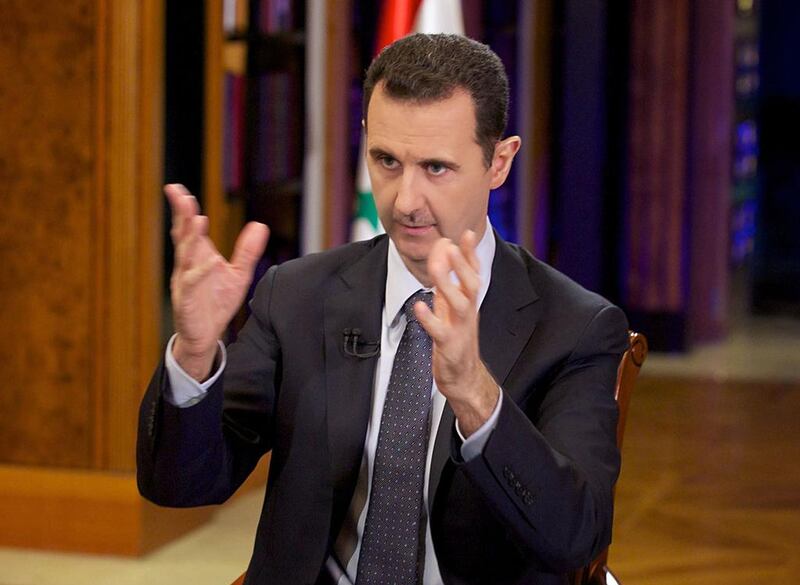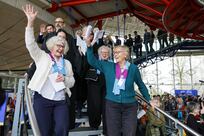Navi Pillay later denied having direct knowledge of their secret list of suspects, but her revealing remarks about Mr Al Assad were at odds with a policy of keeping the identity of alleged perpetrators under wraps pending any judicial process.
The UN investigators, who collect testimony in utmost secrecy and independently from Ms Pillay, have previously said the evidence points to the highest levels of Syria’s government, but have not named Mr Al Assad or any other officials publicly.
They have compiled secret lists of suspects and handed them to Ms Pillay for safe storage, in hope that one day suspects will face trial for violations including torture and mass killings.
“They point to the fact that the evidence indicates responsibility at the highest level of government, including the head of state,” Ms Pillay said.
But she said even she cannot unseal the confidential lists, and insisted she was only repeating what the investigators led by Brazilian expert Paulo Pinheiro had said.
Asked to clarify her remarks, she said: “Let me say that I have not said that a head of state is a suspect. I was quoting the fact-finding mission, which said that based on their facts, responsibility points at the highest level.”
World powers should make accountability for crimes committed in the civil war a priority ahead of Syrian peace talks set for January 22, she said.
The question of whether Mr Al Assad can remain in power after the fighting stops has been one of the major areas of disagreement between the United States and Russia, the two main sponsors of the peace talks.
Meanwhile, the toll from the war continues to grow. The London-based Syrian Observatory for Human Rights monitor said yesterday that 33 months of fighting have left nearly 126,000 people dead.
The group, which relies on a network of activists, lawyers and doctors on the ground in Syria, said it had documented 125,835 deaths in the conflict up to December 1.
The dead include 44,381 civilians, among them 6,627 children and 4,454 women.
The group said at least 27,746 opposition fighters had been killed, among them just over 19,000 Syrian civilians who took up arms to battle President Bashar Al Assad’s regime.
The opposition toll also includes 2,221 army defectors and 6,261 non-Syrians who have joined the rebel side.
The regime side saw nearly double the overall losses of the opposition, with the Observatory documenting 50,927 dead among those fighting for Assad’s government.
The fighting has also crossed Syria’s borders. The Israeli army said yesterday that its troops had been fired on from Syria and they retaliated.
* Reuters with additional reporting by Agence France-Presse and Associated Press





